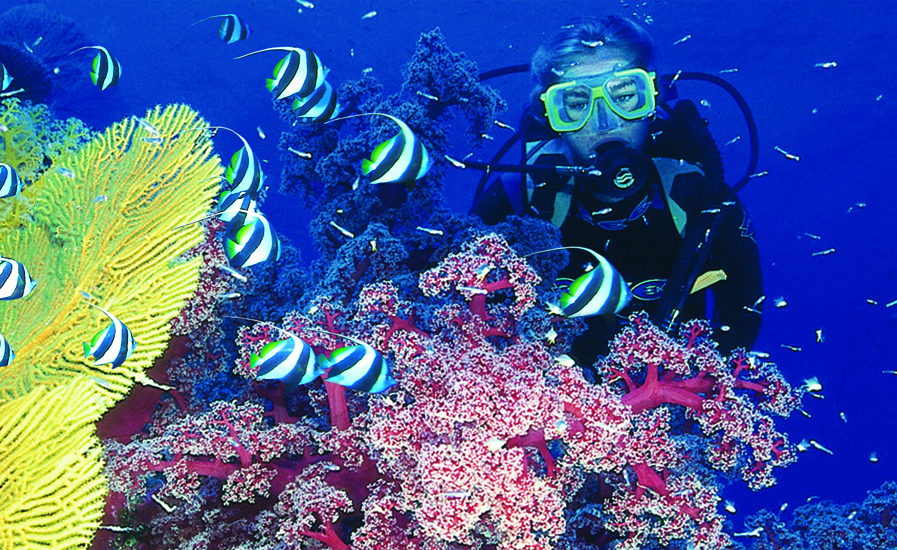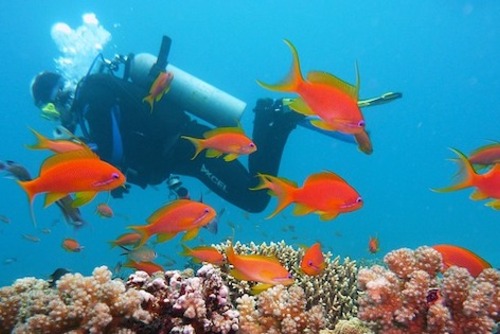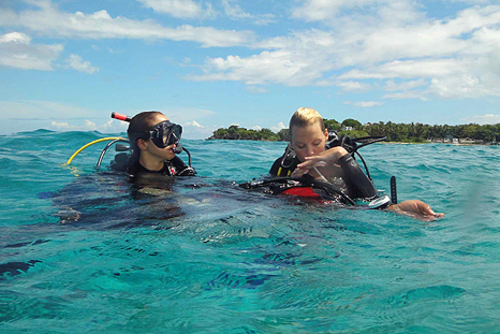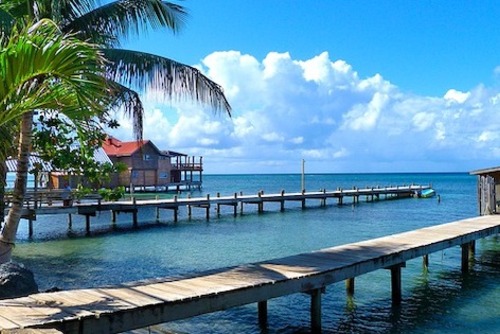Scuba diving can be one of the most incredible adventures of your life and if you are looking to book your first dive experience check out our top tips and advice for staying safe.
1. Buy Travel Insurance
It is important for peace of mind, and just in-case anything goes wrong that you are covered to buy travel insurance before departing. Also be very careful to read the small print before purchasing to make sure your policy incudes adventure and extreme sports like diving as you will find a lot of generic policies to not cover this.
2. Carefully Select a Dive Operator
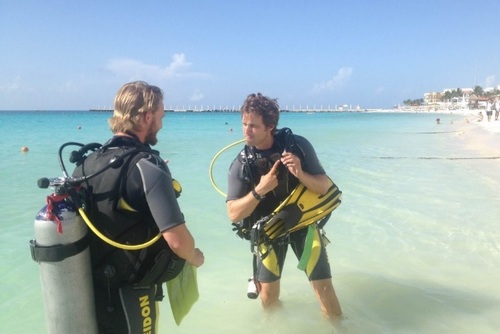
There are thousands of scuba diving schools located all around the world and each one is different. Some cater for complete beginners whilst others offer packages for all abilities. Always check reviews before booking and make sure you know what is included in the price you pay.
3. Choose the Right Destination
Where you go can really have an impact on your whole experience, if you are happy in your chosen location the chances are you will enjoy the experience more and also have a more positive mind frame.
Search dive packages by destination:
- Scuba dive in Africa
- Scuba dive in Asia
- Scuba dive in Europe
- Scuba dive in Latin America
- Scuba dive in North America
- Scuba dive in Australasia-Pacific
4. Go Snorkelling
Snorkelling is similar to diving but without the tanks. Going snorkelling can get you and your body used to being in the ocean and lets you apapt to new surroundings. Snorkelling allows you to briefly explore a small area of the ocean where you will get to hopefully see fish and maybe other marine life. You can also wear a wet suit or flipflops to get used to diving.
5. Take a Taster Course
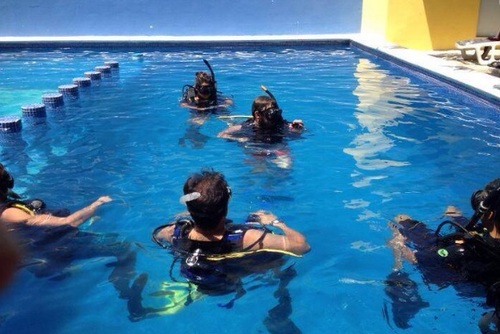
Wondering if diving is right for you? Not sure you want to commit to a full course? Book a taster session, or 1 day dive experience usually known as 'sample-dives' or ‘try-dives’. These offer a good introduction to scuba diving for beginners and will allow you to see if it appeals to you.
You will usually get a training session and a dive, sometimes in a swimming pool, lake or ocean depending on your location. If you enjoy it you will probably want to book a more advanced package.
6. Get the Right Equipment
To go diving there are lots of essential things you need to buy. Some dive operators will provide all these things for you, but you might still want to buy your own.
Some of the most important things to consider getting include:
- Diving Mask
- Drysuit or Wetsuit
- Fins
- Scuba Gloves
- Scuba Tank
- Regulator
- Depth Gauge, Submersible Pressure Gauge, & Compass
There are also lots of other optional things to consider:
- Underwater camera
- Dive Computer
- Buoyancy Compensator
- Snorkel
- Underwater Camera
- Tank Bangers
- Defogger
- Writing Slates
- Underwater Lights
- First Aid Kit
- Dive Logbook
7. Research Before Departing
Get tips, advice and information on the internet before departing for your destination. There are so many websites, blogs, Facebook pages and YouTube videos available to help beginners get advice.
8. Listen to Instructors
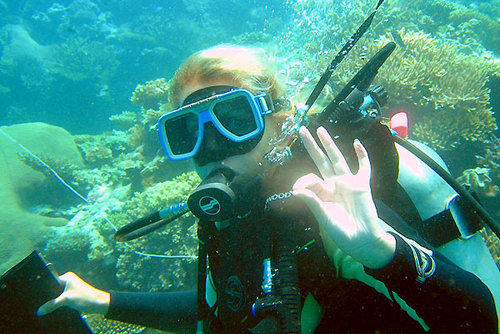
All dive staff will have years of experience helping new divers train. What they say is important and you will need to listen to ensure you fully understand what you need to do to stay safe. If you feel secure with your in the company of your chosen instructors is an important part of any dive.
Scuba diving really in an incredible experience where you will get close encounters with sealife and get to explore the underwater world. If you would like to book a course search our scuba diving holidays today.
Do you have any tips for beginners divers we have missed? Let us know in the comments section below.

